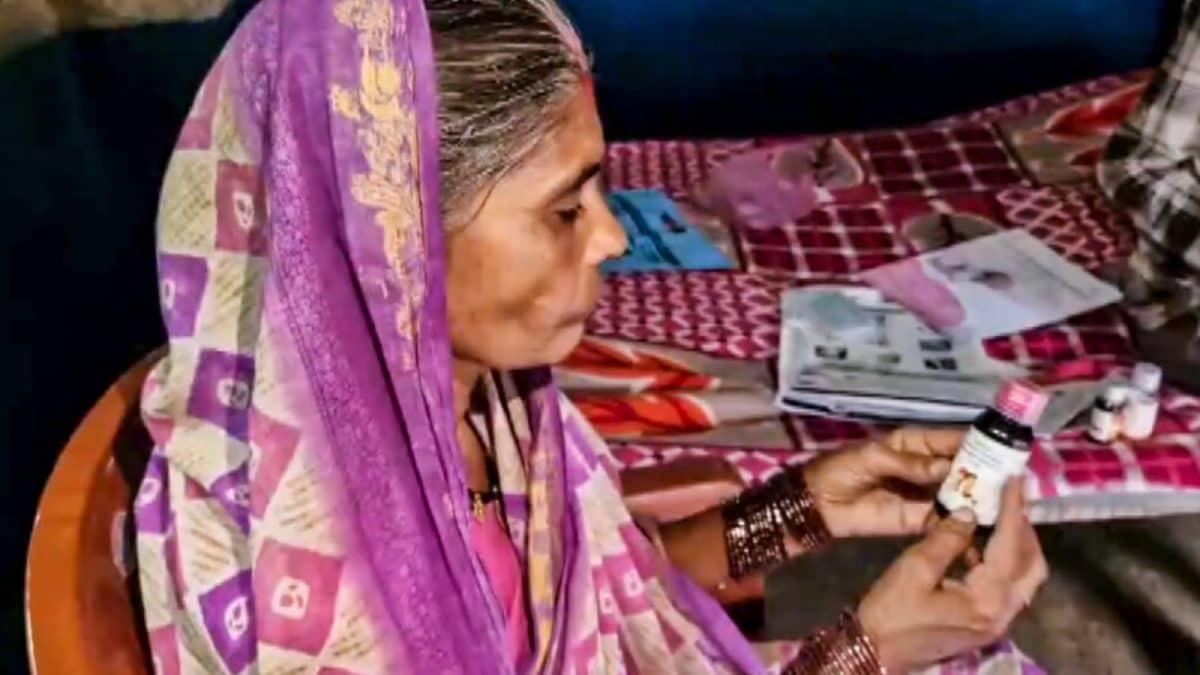Last Updated:
Investigations by the Tamil Nadu Drug Control Authority detected 48.6% DEG in Coldrif cough syrup, the same deadly compound responsible for the 1986 deaths

The cough syrup was found to contain a dangerously high level of DEG, leading to acute renal failure in the affected children. (PTI Photo)
In a chilling echo of history, Madhya Pradesh has reported the deaths of 15 children following the consumption of a toxic cough syrup. On Monday night, another two-year-old girl succumbed in Nagpur, deepening the grief of families across the region. The sight of coffins being carried from the villages of Chhindwara has resurrected memories of a similar tragedy nearly forty years ago.
In January 1986, Mumbai’s JJ Hospital faced an unprecedented medical emergency. Dr Ishwar Gilada, then a resident medical officer, recalls the harrowing onset, saying, “A patient in the ophthalmology ward fainted. Shortly after, another in the neurology ward collapsed. Both developed kidney failure. Within two weeks, 14 patients were dead, and we were desperate for answers.”
Recommended Stories
Investigations revealed a grim reality: the glycerol syrup administered to patients contained 90% diethylene glycol (DEG), an industrial-grade chemical unsuitable for human consumption. Marketed as Indian Pharmacopoeia-grade glycerol, the syrup had infiltrated hospital wards, claiming lives indiscriminately.
The government swiftly commissioned an enquiry, led by Justice BS Lentin, which described the catastrophe as a “monument to negligence”. The report cited failures at multiple levels: hospital administration lapses, regulatory oversight by the Drugs Control Department, and corruption at a repackaging unit. Recommendations were made to strengthen hospital governance, including separate deans for administration and medicine, a position at JJ Hospital that remained vacant until 2022.
Now, decades later, tragedy has struck again in Chhindwara, Madhya Pradesh. Investigations by the Tamil Nadu Drug Control Authority detected 48.6% DEG in Coldrif cough syrup, the same deadly compound responsible for the 1986 deaths.
Dr Gilada, reflecting on the recurring horror, said, “Patients’ conditions would deteriorate suddenly, they would stop urinating, and die within hours. Post-mortems showed that the poison hit organs like a bullet. Even after so many deaths, we have not learned our lesson. Such syrup should be banned nationwide.”
He advocates for mandatory chemical analyses of organs during post-mortems in every case of child death due to suspected medication and calls for a clear separation between food and drug administration to prevent industrial chemicals from entering medicines.
Investigations revealed that Coldrif cough syrup, manufactured by Sresan Pharmaceuticals in Tamil Nadu, was produced under unhygienic conditions with over 350 violations, including rusted equipment and untrained workers. The syrup was found to contain a dangerously high level of DEG, leading to acute renal failure in the affected children.
The Madhya Pradesh government has taken swift action, banning the sale of Coldrif syrup and suspending the state’s drug controller and other officials. A Special Investigation Team (SIT) has been formed, and a doctor who prescribed the syrup has been arrested on charges of negligence causing death. The state has also announced compensation for the affected families and is bearing the treatment costs for the surviving children.
The National Human Rights Commission (NHRC) has issued notices to the governments of Madhya Pradesh, Rajasthan, and Uttar Pradesh, as well as the Drugs Controller General of India, seeking reports on the circumstances leading to the fatalities and steps taken to prevent such incidents.
Mumbai | Madhya Pradesh, India
October 07, 2025, 16:34 IST
Loading comments…
Read More



